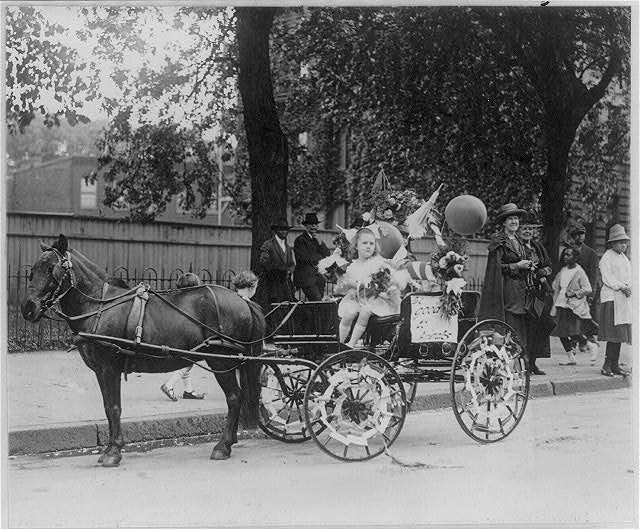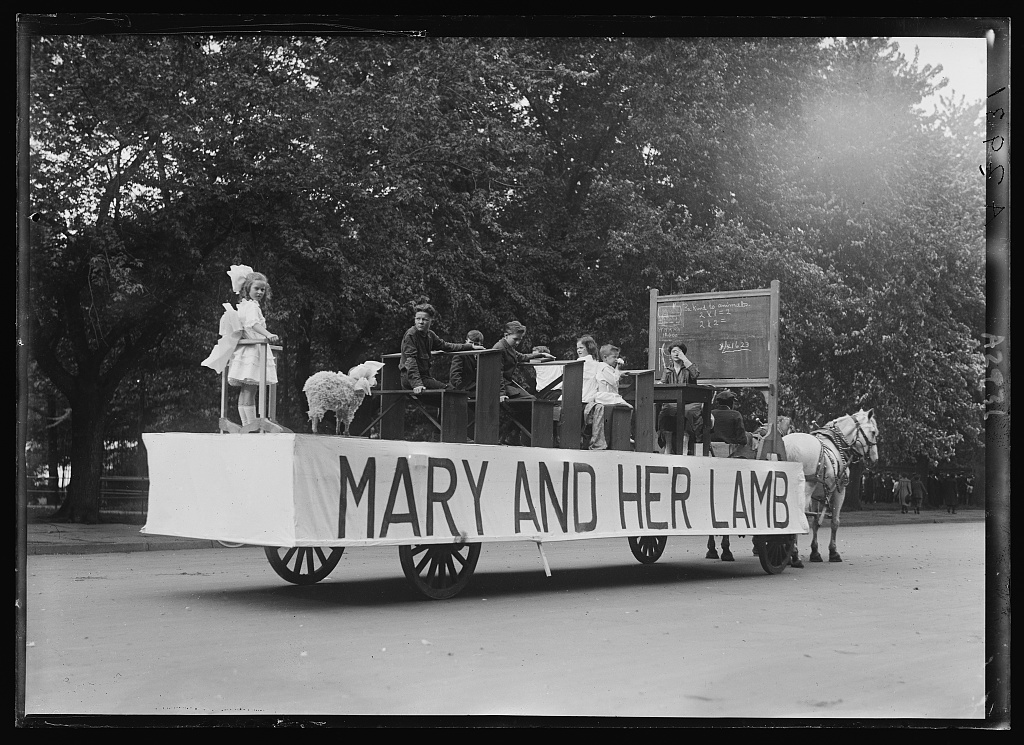On this day in 1971 Congress ratified the 26th Amendment to the United States Constitution which dropped the voting age from 21 to 18.
Marine Corps position in Vietnam, 1967.
The Vietnam War, and the increasing involvement of young Americans in protesting it, really caused the change to come about. 18 was the conscription age, which thereby made men that age liable for combat, and there was a widespread feeling that you couldn't really justly ask people to potentially go to their deaths for a country and not let the same people vote in its elections. That logic was pretty solid really, even though as a practical historical fact very few 18 year olds served in Vietnam. That point, while correct, is really irrelevant, however. The larger point, that you could require people to divert from their plans and force them to serve in the military, but they couldn't vote, didn't make a lot of sense and Congress recognized that fact.
Indeed, the voting age was really a carryover from a much older era in which the drafters of the Constitution paternalistically felt that a lot of people couldn't vote as they didn't have the mental maturity before a certain age or, in other instances, because of their gender. Women couldn't vote, originally, at any age. And the feeling in Colonial times that only propertied men could vote was widespread.
Indeed, in English speaking countries the concept that a person became an adult at age 18 was not the norm and is somewhat of an American oddity. Ultimately it came to be the widespread view, but that was in no small part due to World War One. The English, for example, originally viewed 21 years of age as the service age, although it accepted the oddity of allowing parents to enlist their children, without the children agreeing to it, down to about age 13, if I recall correctly. Be that as it may, younger enlistees were not supposed to serve outside of Great Britain, although it occasionally occurred. The Great War changed all that.
The United States really started off with this view, which reflected, to some degree, its origin as an agrarian nation. Contrary to widespread believe, youthful marriage was not an American norm and early in the country's history a man of 18 or 19 was most probably working on his parent's farm, or perhaps apprenticed to a nearby tradesman. He wasn't out on his own, normally, and he wasn't in the Army, which was so small as to be nearly nonexistent, as we covered here the other day. That started to increasingly change with industrialization and when the formal public school system became universal by the 20th Century the distinct concept of a person graduating from high school and into the adult world arrived.
By and large, however, people usually didn't. Most 18 year olds who graduated, which was a minority of men well into the 20th Century, still went into nearby work and they weren't setting up their own households. The real separation of generations, as noted, began with World War One. Following that, the Roaring Twenties briefly started what the 1960s would more fully develop, which was the concept of leaving home to go to university. The Depression put an end to the Jazz Age abruptly, but World War Two massively introduced the idea that at age 18, you were an adult. It not only did that, it massively separated teenagers from their homes and, if they weren't in the service, many were in university on their way to the service. The war also boosted youthful marriage, briefly, as people rushed into adulthood not knowing how long the war would last.
Coming out of the Second World War the trend continued with the GI Bill and the concept of "graduating from high school and going to college" really set in. My own father was the first in his family to do that (my mother's parents, in contrast, were both university graduates from the 1910s, something extraordinarily unusual at the time). He was somewhat compelled to do so, however, by family pressure and circumstances. My grandfather had died and with him my father's probable future employment. My father's Irish American mother, to whom he was close, had already seen him enter "junior college" and when my grandfather died she wouldn't allow my father to retain a job he'd taken with the Post Office and required him to move on, on the basis that "he was too intelligent" to work the job that he'd been comfortable with. He was a genius, so perhaps her view had merit. We'll deal with that another day.
My father, like many men of his generation, went right from university, where he'd obtained a DDS degree, into the service, in his case the Air Force. After his Air Force service, however, he came back home and was living at home when he met and married my mother. That retained pattern of life remained common as well.
But by the 1960s things were really changing. And Congress followed the change. On this day in 1971, the voting age became 18 years of age. Only nine Congressman and two Senators voted against it.
I recall this actually occurring. In 1971 I was a grade school student and it was the talk of the school. The fact that all of us very young people thought it was a great idea, and that even then we associated it with the Vietnam War, shows to what extent that must have been the view of our parents.
It should be noted that right about this time, although I don't recall exactly when, the Wyoming state legislature dropped the drinking age to 19 years of age. The rationale was exactly the same. Wyoming had only one military base, but the thought was that you really couldn't ask people to go off and fight in Vietnam and tell them they were too young to have a beer. It frankly makes some sense. The neighboring state of South Dakota dropped it to 18. I don't know why Wyoming didn't go that low, but the thought of having people in high school young enough to drink probably had something to do with it. As it was, the drop in the age came to mean that there was almost no drinking age as a practical matter.
Of course, over time, things change in various and interesting ways. The Federal Government came about and ultimately punished states that had dropped their drinking ages with the threat of withholding highway funds, so they all boosted them back up to 21. Wyoming did so only very reluctantly and nearly didn't. In the end, however, it came around. Conscription came to an end with the end of the Vietnam War, although men and women can still enlist at age 18. On base, those in the service could drink at the 1-2-3 clubs by my recollection, irrespective of age and state law, although only 3.2 beer. I don't know if that's still true or not.
The big change, however, is that the older pattern of living, with adult children living at home, has returned in a major way as the post World War Two economy finally ground to a halt in the last quarter of the 20th Century. A matter of constant speculation by the press as a "new" development, it's nothing of the kind, but rather a return to prior days.
On the same day, the crew of the Soviets Soyuz 11 spacecraft were all killed in reentry, a horrible tragedy that I can can also recall being talked about at the time. Interestingly, while we feared the Soviets, the heartache over the disaster was so palatable that I can still feel it, in thinking of it. May God rest the souls of the Cosmonauts who perished so tragically on that day.
Also on this day, the United States Supreme Court found the New York Times publishing of the "Pentagon Papers" to be constitutionally protected by rejecting a Federal government effort at imposing an injunction on it as an unconstitutional instance of illegal prior restraint.








































